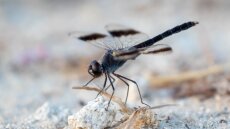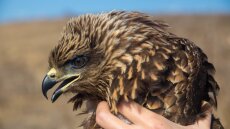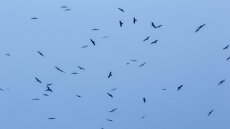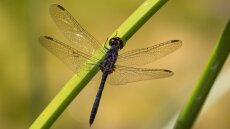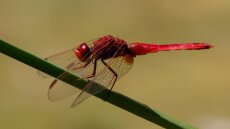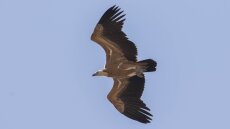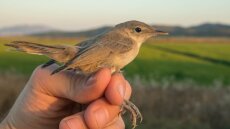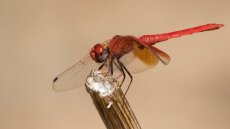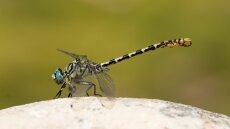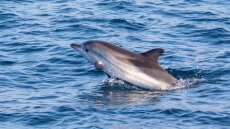The schedule for this winter Ecological Seminar is now available.
MEES Excursion 2019: Tarifa, Spain
Bachelor 1st year
-
Praktikum Evolutionsbiologie (BB006)
We are organizing a one-week pracical block course at the end of each summer term. In the course we use the agent-based modelling tool NetLogoExternal link to study evolutionary topics. NetLogo is a great tool, because it allows run in silico experiments. Students learn to make observations (by watching the behavior of a model), perform experiments (by tuning parameters) and develop hypothesis. There is a great many things to discover, including some fundamental principles of population genetics, but also other ecological and evolutionary processess. The practical covers Hardy-Weinberg equilibrium, genetic drift, natural selection, speciation with reinforcement and the evolution of cooperation.
-
Ringvorlesung Evolutionsbiologie (BB2.1)
We are organizing in a lecture series in evolutionary biology that sheds light on a large number of topics in evolutionary biology. The lecture series hosts a large number of speakers from across Jena University and therefore serves the dual purpose of giving a broad introduction to the field as well as introducing the different working groups at our university. This nicely illustrates the wealth of competence that is available at Jena University. Our contribution is a lecture on evolutionary ecology and genetics. The lecture series is targeted at 1st year bachelor students and takes place during the summer term. Lectures are usually given in German.
Bachelor 2nd year
-
Grundpraktikum Ökologie (BB2.1)
This practical course exercises the full flow of a typical research project in ecology, starting with study design, followed by experimentation, data analysis and finally oral presentation of the results. We offer a selection of topics within a wide variety of fields, including community ecology, population ecology, and behavioral ecology. The practical is targeted at 2nd year bachelor students and takes place as a one-week block in July. This practical is taught in German.
Bachelor 3rd year
-
Vorlesung Anpassung und Artbildung (BB3.Ö1.1)
The lecture introduces basic evolutionary, population genetic and genomic concepts for the study of adaptation and speciation. The ability to adapt to a changing environment is one of the key features of natural populations of plants and animals and it is key to their persistence. The lecture covers the mechanisms and limitations to adaptation as well as how adaptation can be studied using modern genomic tools. While adaptation is the foundation of persistence, speciation is the central engine that creates biological diversity. The lecture addresses this topic at the interface between micro- and macroevolution. Classes are targeted at 3rd year bachelor students and take place during the winter term. This lecture is delivered in German.
-
Vorlesung Einführung in die Verhaltensökologie (BB3.Ö4.1)
This lecture introduces the concepts and methods of behavioural ecology. The field of behavioural ecology is concerned with understanding and explaining animal behaviour with a special focus on the adaptive value of behaviour. The lecture covers selected topics, including foraging and optimal decision making, group living and cooperation, sexual selection and mating systems, communication and signal evolution. A number of fundamental theoretical concepts will be introduced, but the lecture will also cover how these concepts can be tested empirically. The lecture is targeted at 3rd year bachelor students and takes place during the first half of the summer term. The lecture will be delivered in German.
-
Vorlesung Ökologie der Insekten (BB3.Ö12)
Insects are not only the most species-rich group of animals, they also play a key role in many ecosystems. The lecute cover the dispersal ecology of insect, dormancy in insects, the role of temperature in insect development, feeding ecology and plant-insect interactions. The lecture is targeted at 3rd year bachelor students and takes place during the winter term. The lecture will be delivered in German.
-
Artengemeinschaften im Wandel (BB3.Ö1.1)
The aim of this seminar is to provide an overview of the multiple consequences of global change on species communities. In a literature search, the different aspects of global change and their possible impacts on species communities will be elaborated, and the development in this research field over the last 50 years will be examined. Furthermore, in short presentations, recent scientific publications on the topic will be introduced. The seminar is targeted at 3rd year bachelor students and takes place during the winter term. The class will take place in German.
-
Faunistische Methoden (BB3.Ö4.1)
This practically-oriented seminar introduces an array of tools and methods for the study of community ecology, population ecology, and animal behavior. Topics include bioturbation, analysis of animal behavior, arthropod diversity, telemetry, data logging, monitoring surveys, forest population structure analysis, and molecular finger printing. Classes are targeted at 3rd year bachelor students and take place during the summer term. This seminar is taught in German.
-
Vertiefungspraktikum Ökologie (BB3.Ö6)
This is a practical course that serves as a preparation for the Bachelor thesis and is usually supervised individually. We continuously offer a selection of different topics and as for the Bachelor thesis itself, it is best if you contact individual group members directly. Fiedolin ID 10302External link
-
Bachelorarbeiten
Learn moreWe continuously offer a selection of topics for bachelor and master theses, broadly form the fields of evolutionary, molecular and community ecology. Please see the list of previous topics to get an idea about the range of offers. Interested candidates are also welcome to contact use for more information.
Master 1st year
-
Ecology and Diversity of Populations (MEES.C2)
The lecture introduces classic population ecological principles, a bit of community ecology and some basics of evolutionary ecology. Together with a lecture on Ecology and Diversity of Habitats, this lecture sets the basics in ecology for students of our Master program Ecology, Evolution and Systematics and is therefore a mandatory part of the first semester for new MEES students. The lecture is given in English.
-
Evolutionary and Population Genetics (MEES.E5)
The lecture introduces basic and advanced population genetic principles. Basic population genetic knowledge is essentially for understanding adaptation, diversification and speciation on microevolutionary timescales. Lectures cover topics ranging from quantitative genetics via classical population genetics to modern population genomic approaches. The lecture is targeted at 1st year master students and takes place during the winter term. The lecture will be delivered in English.
-
Population Genetic Analyses (MEES.E5)
The practical is targeted at 1st year master students and takes place during the winter term. Classes will take place in English.
-
Classic Papers in Ecology and Evolution (MEESÖ2).
The aim of this seminar is to familiarize with fundamental papers from the fields of ecology and evolution. There is a selection of papers covering roughly the time period between 1910 and 1980. These seminal papers allow us to discuss key questions in ecology and evolution in an informal atmosphere. At the same time, we also learn about the context in which new ideas arose and how they propagated to influence contemporary science. Students will take turns to chair the sessions. Taking this role will provide them with practice in structuring and leading discussions. Classes are targeted at 1st year master students and take place during the summer term. All discussions will be in English.
-
Scientific Writing (MEES.Ö17)
Science is not only about doing practical research, but also about communicating research results to the scientific, or possibly even a broader community. Scientific writing is characterized by its rather strict structure, but efficient scientific communications is more than sticking to the rules. In this course we introduce valuable guidelines for an efficient communication of ideas and results. The seminar offers room to reflect on scientific writing by analyzing published papers and by practicing scientific writing. Although the main examples in the seminar will be based on contemporary research papers, the seminar will also benefit anyone who is interested in public communication of science. The seminar is targeted at 1st year Master students and takes place during the winter term. The seminar will be held in English.
-
Scientific Communication Culture (MEES.Ö17)
As a complement to the seminar on scientific writing, this class will target scientific communication more broadly. In a series of exercises and interactive discussions we target topics such as scientific peer review (from the perspective of authors as well as from the perspective of reviewers), post-publication peer review, recent trends in scientific communication cultures, such as open data and pre-registration initiatives, reflection of good scientific practice and conduct, etc. We will also practice oral presentations more intensely with a focus on efficient body language and phrasing. The seminar is targeted at 1st year Master students and takes place during the summer term. The seminar will be held in English.
-
Ecological Seminar (MEES. Ö1.1)
We offer a seminar series on a variety of topics in ecology and evolution. The series will allow researchers, PhD students, and master students to present their current work and also features presentations by external guests. The seminar series is open to students at all levels. The seminar series takes place both during the summer and winter term. Lectures and discussions are typically given in English.
-
Großexkursion
A large excursion of about two weeks in duration is part of the Master studies in Ecology, Evolution and Systematics (MEES). Large excursion are meant to showcase exciting habitats and ecosystem. They often involve small practical sessions that demonstrate data collection under field conditions. Topics and target destination change from year to year and the organization rotates between the participating groups that run the MEES. The last excursion that we had been involved in was a summer excursion to southern Spain in 2019. Exursion will be led in English or German as required.
Master 2nd year
-
Vertiefungspraktikum MEES/Ökologie (MEES.T1)
This advanced practical course offers students with the opportunity to pursue the full flow of a research project in ecology and evolution. This includes study design, data collection and analysis as well as oral presentation of the results. Individual students specialize on a specific topic. Focal topics vary between years and there is some flexibility to adjust to the interest of the students. The research module is targeted at 2nd year master students, takes place during both the winter and the summer term and may serve as a preparation for the Master thesis. The practical is taught in English or German as required.
-
Master theses
Learn moreWe continuously offer a selection of topics for bachelor and master theses, broadly form the fields of evolutionary, molecular and community ecology. Please see the list of previous topics to get an idea about the range of offers. Interested candidates are also welcome to contact use for more information.
